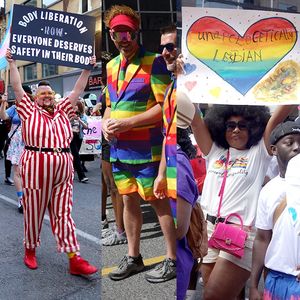The Connecticut
supreme court has denied a conservative group's request
to intervene in a lawsuit over whether gay and lesbian
couples should be allowed to marry in the state. The
court decision, released Monday, upholds a lower
court's ruling denying the Family Institute of
Connecticut's motion to intervene in the case.
Eight gay couples
are challenging the constitutionality of the state's
marriage laws. That case is pending. Connecticut became the
second state in the nation, after Vermont, to allow
civil unions. In 2005 the Democrat-controlled
legislature passed, and Republican governor M. Jodi
Rell signed into law, a bill legalizing civil unions but
defining marriage as between a man and a woman.
Eight couples
sued the state, claiming that civil unions are an inferior
status and violate their constitutional rights to equal
protection, due process, and free expression and
association. The plaintiffs sought a court injunction
compelling the state to grant each couple a marriage
license rather than a civil union license, which the judge
denied.
The couples say
the laws are unconstitutional because they treat gay and
heterosexual couples differently. The Gay and Lesbian
Advocates and Defenders, a group involved in the case,
used a similar argument to win same-sex marriage in
Massachusetts.
In Connecticut a
lower-court judge ruled last month that gay and lesbian
couples have not been harmed by the state's decision to
legalize same-sex civil unions rather than grant full
marriage rights. GLAD has appealed that decision.
The Family
Institute wanted legal standing in the case to present
evidence that it says shows children are hurt by living in
gay and lesbian homes. They also argued that state
attorney general Richard Blumenthal was not defending
the state's marriage laws aggressively enough.
Connecticut
recently became the first state to offer civil unions
without a court order, but GLAD and the couples
involved in the lawsuit argue that civil unions are
not equal to full marriage. Mary Bonauto, an attorney
for GLAD, said the court's decision provides "a very helpful
reality check," affirming the argument that the Family
Institute and heterosexual couples would not be harmed
by the plaintiffs' quest for the right to marry.
"Obviously we're pleased by the decision," she said.
"There was no reason for an antigay group to become part of
the case to make its arguments."
The supreme court
also agreed with the trial court's opinion that letting
the Family Institute join the case could open the door to
scores of others, making the complicated case even
more unwieldy. "The trial court properly balanced the
parties' interest in the expeditious resolution of
this action with its desire to avail itself of the
institute's proffered expertise," the supreme court opinion
said.
The Family
Institute argues that the best interests of children are not
protected by allowing them to be raised by gay couples and
that Blumenthal should have tried to get the case
thrown out. Peter Wolfgang, director of public policy
at the Hartford-based institute, said Monday that the
decision strengthens their resolve to seek a referendum on a
proposal to change the state constitution to define marriage
as a union between a man and woman.
"We believe
strongly that this court ruling proves this decision
ought to be left to the citizens of Connecticut," Wolfgang
said. "We're disappointed we didn't win. We think the
supreme court made the wrong decision and should have
followed the good example set by New York's highest
court." (AP)


















































































